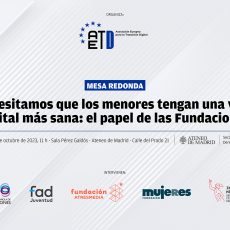
The short-video application TikTok, a phenomenon among teenagers, is the new battleground in the digital cold war between China and the United States. The Trump administration considers TikTok to be a Trojan horse that the Beijing regime is using to collect data from thousands of Americans, data that would be used for espionage.
The new hostilities between the two digital superpowers began on July 31, when President Trump told the press on Air Force One: “As far as TikTok is concerned, we will ban it in the United States,” where the app is estimated to have reached 165 million downloads.
But, as is often the case in the Trump administration, the president’s words go one direction; the facts, and their speed, not exactly the same way. Almost one month after this announcement, how this ban would be carried out, and even if it is really possible, remains to be seen.
For the moment, the latest episode in this war has taken place in a federal court in California, where TikTok’s owner, Bytedance, has filed a lawsuit against the Department of Commerce, President Donald Trump, and Secretary of Commerce Wilbur Ross, to prevent the government from putting an “unwarranted ban” on how the social network operates in the country.
What is Europe’s position in this dispute? As in the conflict between China and the United States over Huawei and the 5G networks, the EU is caught between two giants. But while in the case of the telecoms company it is showing a somewhat tough position towards the Chinese giant, nothing seems to indicate it perceives TikTok to be a threat to freedoms.
In fact, both the EU as a whole and some individual governments have agreements with TikTok to promote information on issues such as the fight against COVID-19 or child abuse. For the online newspaper Politico, the EU is a ‘safe haven’ for TikTok.
But that does not mean there are no risks: Like any application that handles sensitive information from millions of individuals, the EU must monitor that TikTok fully complies with its data protection laws, remembering that it is part of a political and economic system that is far from European democratic standards. The concern over TikTok is not just one more eccentricity from the Trump administration; prominent Democratic politicians have also publicly sounded the alarm.
That is why Europe must remain vigilant about its requirements for TikTok. But beyond the specific case, the important thing would be to avoid a situation that is beginning to be frequent: Europeans being mere spectators to the battle between foreign giants having their own, and legitimate, interests.
The EU must defend a level playing field, where everyone complies with the same – fair and clear – rules. And at the same time, it must promote the conditions necessary to build and strengthen its own digital giants. As we state in our manifesto, what is at stake is not only where Europeans’ data ends up, but also our own political, economic and individual sovereignty.




